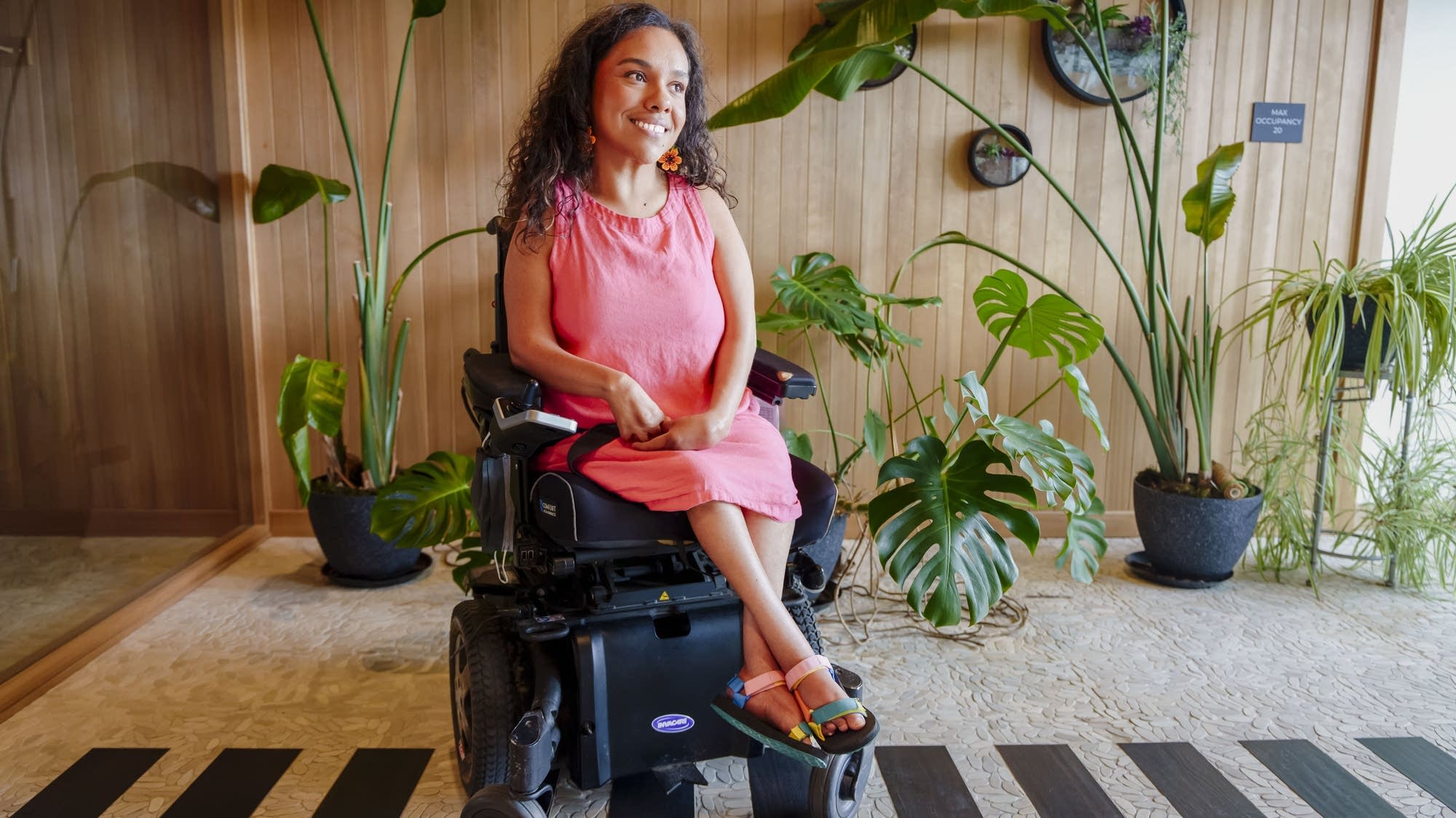In celebration of Disability Pride Month, MPR News will be featuring stories of Minnesotans with disabilities making an impact throughout July. Visit mprnews.org/changemakers to learn more.
When Brittany Hernandez Wilson thinks about a better world, she thinks about eliminating ableism.
“Disabilityism is the connecting thread,” she says. “It’s transformative, and all other forms of oppression are influenced and reinforced by ableism.”
Hernandez Wilson is director of equity and justice at The Arc Minnesota, an organization that advocates for people with intellectual and developmental disabilities.
Individual donations help make MPR News accessible to all, without paywalls or barriers.
That means working and fighting for legislation that improves people’s lives. Hernandez Wilson has served on the state Task Force on Eliminating Subminimum Wages and the Minnesota Governor’s Council on Developmental Disabilities.
But much of her work takes place outside of Capitol Hill, training organizations, nonprofits and government agencies to think and act differently.
Her passion for disability rights is personal: Hernandez Wilson was born with arthrogryposis multiplex congenita, a joint and muscle disorder.
She would love for anyone with a disability to join her in leading this work.
Hernandez Wilson spoke with MPR News producer Gretchen Brown from her St. Paul home.
Editor’s note: The following interview has been edited for length and clarity.
What drives your work in disability justice advocacy?
Hernandez Wilson: This isn’t something I always set out to do. I think being an advocate is something I’ve always done, as is just being and living in a disabled body.
I took a self-advocacy class called “Partners in Policy Making,” a free class hosted by the Minnesota Governor’s Council on Developmental Disabilities, and it really showed me the power of self-advocacy and how it has impacted my community and my own human rights.
And as I started to sit at different tables and sit in different meetings, I realized, “Wow, I’m the only person of color in this room, and I’m the only person with a disability.”
I learned very quickly that policies that are made for people with disabilities are often made by people who don’t live with disabilities, and that was a big moment of, “Oh, I have to do this. This is my job. And this is my mission. I have to represent my community.”
I’m Black, Mexican, and queer, and I felt there was a huge gap in this work that called for more intersectional voices and lived experiences.
Of all the work you’ve done so far, what are you most proud of?
One of the things I am most proud of is the training I do on ableism and disability justice. Over the past two years, I have had the opportunity to speak at over 25 different organizations.
It’s so rewarding when teachers come up to me and say, “Oh my gosh, you made me think. I’m going to change the way I teach my class,” or, “I’m going to expect more from my students with disabilities.”
This year, I was involved in two successful campaigns, one of which was the passage of legislation that strongly encourages teachers who are undergoing training and seeking licensure or relicensure to learn about disability discrimination and disability justice, and that disabled people should teach it.
And I worked to reform the health care program I participate in, Medical Assistance for Employed People with Disabilities (MA-EPD), which allows me to work and earn a competitive wage.
I and other members of the coalition have worked together to push for reforms so that instead of having to apply for this program every six months, you only have to wait every year. That’s a great thing. It takes a huge burden off the states and off the people who participate in this program.
Is there anything else you’d like to see more attention on in this area?
It’s so important for us as a culture to recognize that disability is natural and normal, and it’s really not a question of if you have a disability, but when you have a disability.
Let’s talk about your hopes for the future. First, I want to know your personal hopes and dreams for your career. How do you see yourself?
Sometimes people ask me, “Hey, have you ever thought about running for office?” and I usually say, “No.” I want to advocate. I want to be a leader in this field. I want to be given the opportunity to speak about ableism and disability justice more broadly. And I hope to one day have my own business and do this work and be called to wherever it’s needed.
What are your hopes for Minnesota’s future?
“No matter what language you speak, what religion you practice, where you come from, how much money you have, you can have the services you need to live and thrive. And most importantly, I think we have a lot of room to grow into a state that is truly proud of its citizens, that fully supports them, and that believes in them.”

